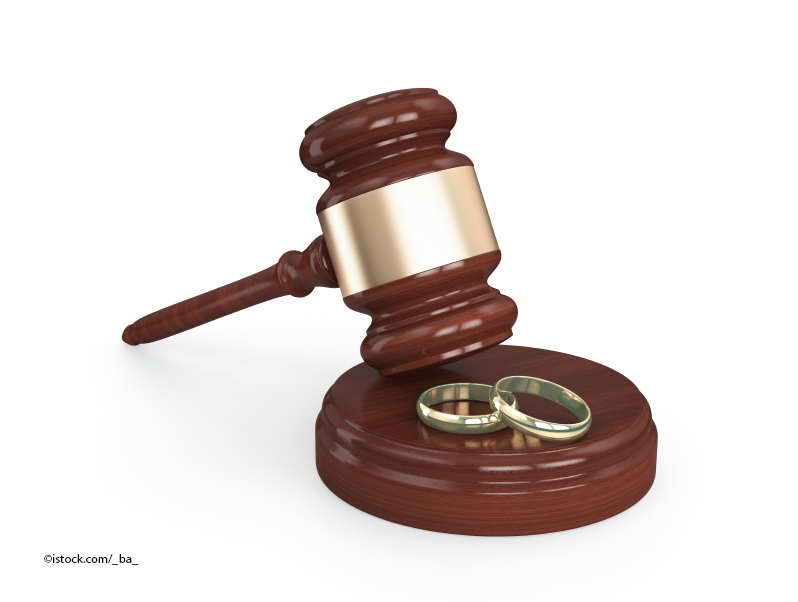August 15, 2014
8/15: Views on Same-Sex Marriage: Supporters Look to Feds, Opponents More to States
A majority of Americans favor legalizing same-sex marriage, but there is little consensus about whether the decision should be made on the federal or state level. Supporters of legalizing same-sex marriage think the issue should be decided for the entire country by a federal law. Half of those who oppose it believe it should be determined by the states.
 And, while Americans’ position on legalizing same sex marriage is a driving factor in the debate, political party affiliation matters, too. Democrats are more likely to turn to the federal level, and Republicans look more to the states. Independents are closer to the Democrats on whether to seek federal or state action.
And, while Americans’ position on legalizing same sex marriage is a driving factor in the debate, political party affiliation matters, too. Democrats are more likely to turn to the federal level, and Republicans look more to the states. Independents are closer to the Democrats on whether to seek federal or state action.
Support for same-sex marriage has grown significantly over the past decade. And, there has been a sea change in attitudes among Americans toward people who are gay over the past thirty years. Sexual orientation has become less of a societal taboo. More than seven in ten Americans personally know someone who is gay. And, for more than half of adults nationally, say their circle of friends, family, and colleagues now includes more people who are gay than a decade ago.
Most people believe it would make no difference to their vote if their party nominated someone who was gay. And, although about one in three parents would still be upset to learn their child was gay, there has been a major shift in attitudes and acceptance since the mid-1980s.
Complete August 15, 2014 USA McClatchy-Marist Poll
“You would be hard pressed to find an issue that’s had a bigger shift in public opinion over the last several decades than this one,” says Dr. Lee M. Miringoff, Director of The Marist College Institute for Public Opinion.
Poll Points
- 51% of registered voters think the decision to legalize same-sex marriage should be made by federal law, 44% believe it is a state’s issue, and 6% are unsure.
- Support for a federal law to resolve the debate over same-sex marriage is being propelled by Americans who believe it should be legalized. Although a notable proportion of opponents are also looking to the federal government to settle the issue, 50% of Americans who oppose legalizing same-sex marriage believe it is a state matter.
- A partisan divide exists. 64% of Democrats and 52% of Independent voters favor a federal mandate. In contrast, 59% of Republicans want the issue to be decided at the state level.
Majority Supports Same-Sex Marriage
- When it comes to support for legalizing same-sex marriage, 54% of Americans either strongly favor or favor doing so. According to trend data from the Pew Research Center, support for gay marriage has been on an upswing, reaching a plurality of support among Americans in 2011 and majority support just last year in 2013.
- Attitudes about legalizing gay marriage fall along party lines with more than six in ten Democrats, 62%, favoring the action. A similar proportion of Republicans, 63%, are against it. Age also matters. 65% of Americans under 45 years of age support legalization of same-sex marriage compared with 44% of their older counterparts who share this view.
- More than one in ten Americans, 12%, has changed their opinion on legalizing same-sex marriage, favoring it now while opposing it previously. Only 1% now opposes allowing same-sex couples to marry when they once favored legalization.
Sea Change
- 71% of Americans know someone who is gay, and 52% of adults nationally say the number of gay and lesbian people they know has grown over the past ten years. This is especially true for younger Americans. When the Pew Research Center asked a similar question in 1999, only 39% of Americans said they had a friend, colleague, or family member who was gay.
- More than eight in ten adults, 83%, say knowledge that a congressional candidate is gay or lesbian would make no difference in how they vote. 14% would be less likely to cast their ballot for a gay or lesbian candidate. The Los Angeles Times Poll asked this question of Americans in 1985. At that time, 49% said a candidate’s sexual orientation would not make any difference in deciding their vote, and 47% reported they were less likely to cast their ballot if a candidate was gay.
- 62% of Americans would not be upset if their child were gay, including 48% who would not be upset at all and 14% who describe their reaction as not very upset. 35% of adults nationally would be upset if their child came out to them. This includes 13% of residents who would be very upset and 22% who would be somewhat upset. Age matters. 21% of Americans under 30 would be upset if their child shared this with them compared with about one-third of adults between 30 and 59 years of age and nearly half, 48%, of Americans 60 or older.
- But, attitudes are significantly different than they were in 1985. In a Los Angeles Times Poll, conducted nearly thirty years ago, 89% of Americans said they would be troubled if their child was gay. In that earlier poll, 64% of Americans characterized their reaction as very upset and 25% were somewhat upset. Five percent said they would not be very upset, and only 4%, then, said they would not be upset at all.
Nature of the Sample and Complete Tables
